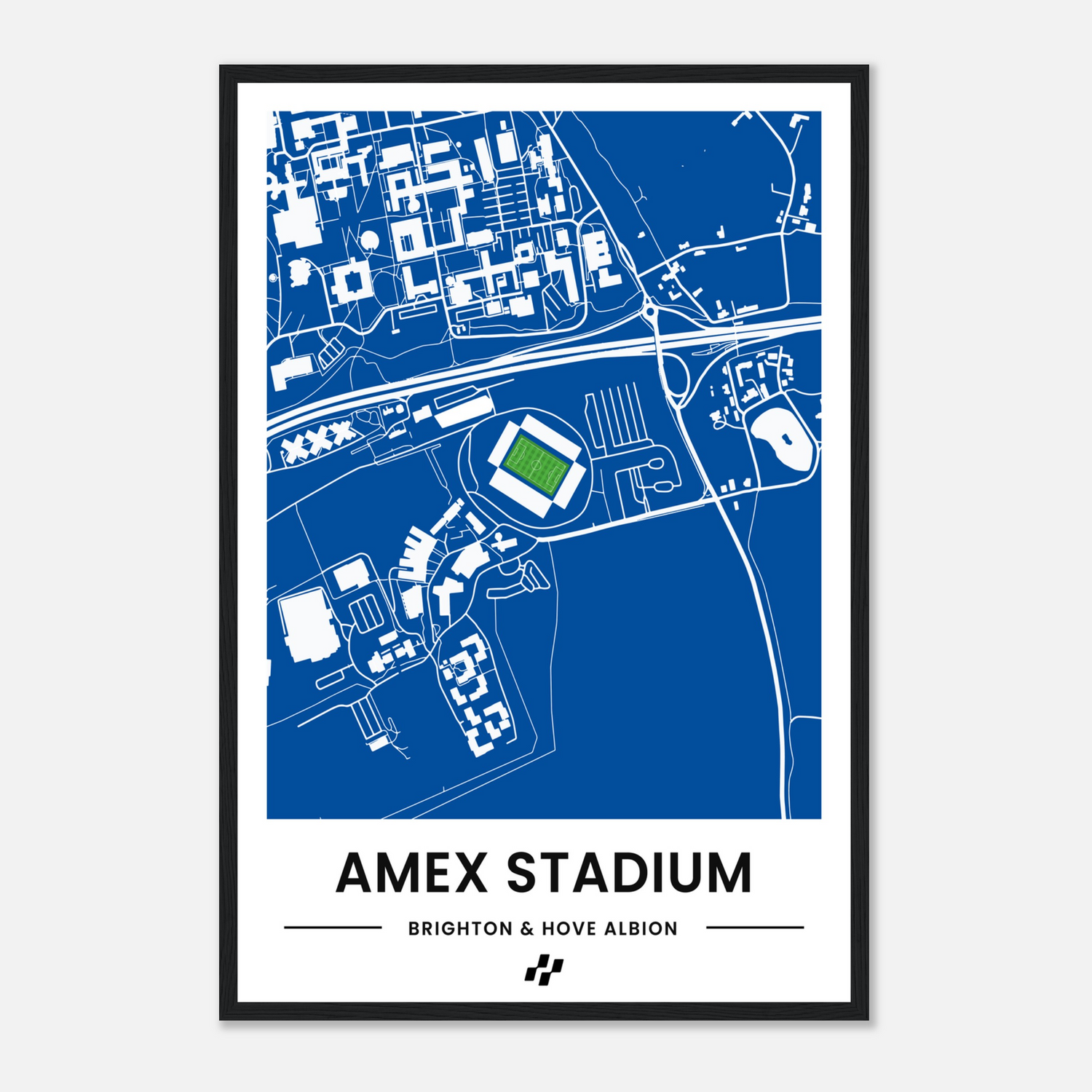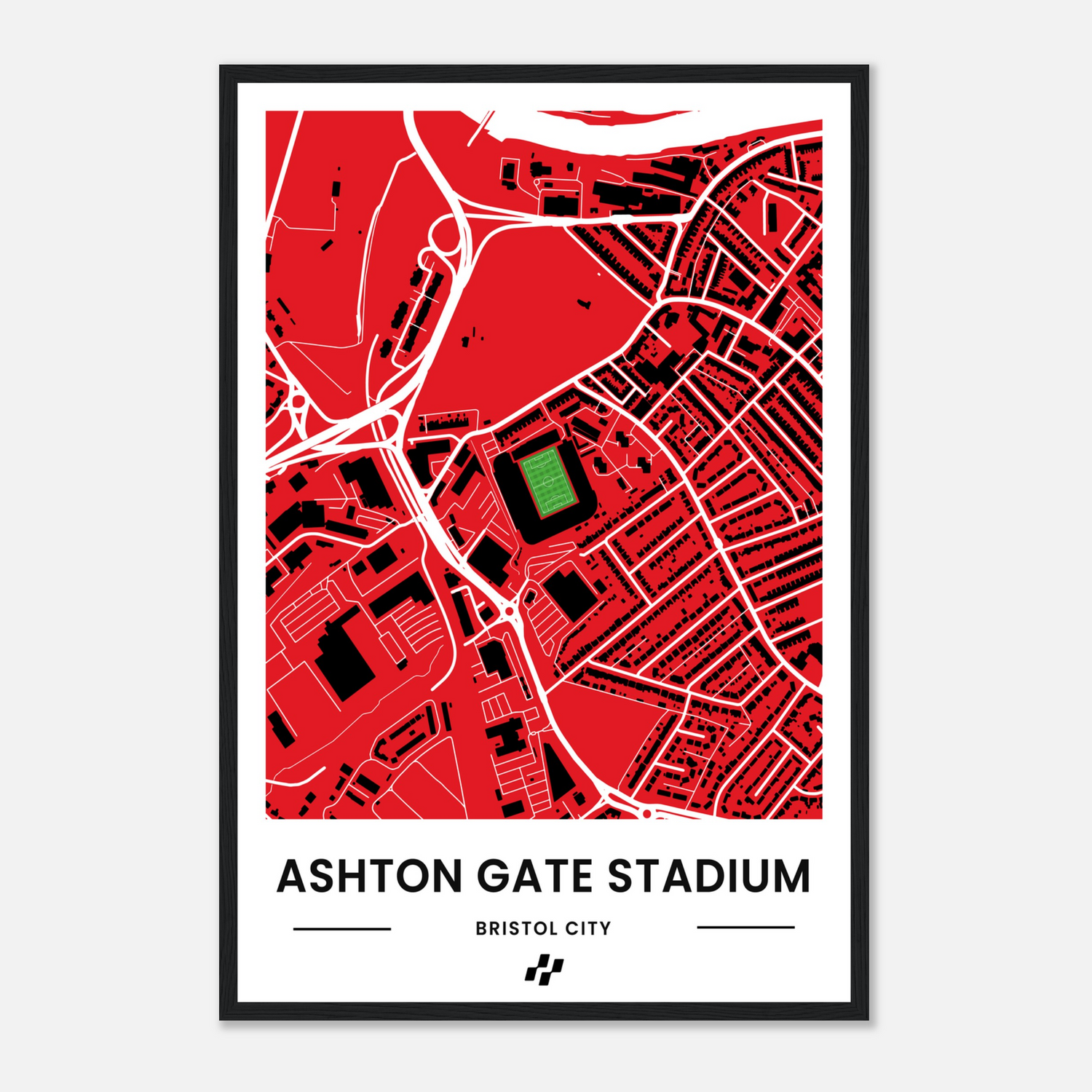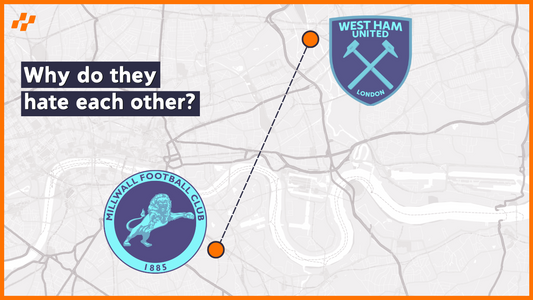
What On Earth Happened To Wigan Athletic?
Share
The case of Wigan Athletic is one of the most complicated cases we’ve covered. The club with one of the best underdog stories, under the local ownership of Dave Whelan, they achieved historic feats, including a triumphant run in the Premier League and an FA Cup Win in 2013.
However, fast forward to 2024, a combination of ownership changes, marked by broken promises, financial crises, and administrations plagued the club. resulting in point deduction and ultimately relegation down the football leagues.
In our next episode of How Not To Run A Football Club, we delve into the strange case of Wigan Athletic, and what led one of the best-run clubs in English football, to a club fighting for existence.
Click here to watch the full video on our YouTube channel
The Triumphant Years
From 1995 to 2018, the club was owned by local entrepreneur Dave Whelan and progressed through the leagues, culminating in a second-place finish in the English Championship in 2005. This would be the first time the Latics would play top-flight football in their then 73-year history.
Wigan, were tipped to be relegated from the Premier League in their first season, not only did they manage to stay up, they remained in the top flight for eight years and claimed a 10th place league position in their first season. In that time, Wigan were also runners ups in the 2006 League Cup Final and, most famously, beat Manchester City in the 2013 FA Cup Final.
Under maverick coaches as varied as Paul Jewell, Steve Bruce, and Roberto Martinez, Wigan was known for playing good football and bringing in players from unfashionable parts of the footballing world.
Playing exciting football on a budget would not last forever, though, and in 2013, Wigan was relegated from the Premier League under Martinez – only a short time after winning the FA Cup. The club’s decline can arguably be traced back to that moment.
The Beginning Of Turmoil
Wigan began to struggle financially. In 2012-13, Wigan’s revenues totalled £56.4 million, three years later, they had dropped to £15.7 million and in 2018-19, they were just £11.5 million – the lowest in the Championship.
Wigan’s wage bill went from £43.7 million in 2013 to £19.4 million in 2019, a logical reduction but the wage-to-income ratio was at a very dangerous 168% in 2018-19, one of the highest in the Championship.
Wigan made a net loss of £9.2 million in 2018-19, making it five annual losses in six seasons since their Premier League status ended. Whenever the club sailed close to a crisis, Dave Whelan would prop them up.
However, it was announced that the club would be sold to a company in Hong Kong – the International Entertainment Corporation (IEC)- for around £22m.
This would bring about the end of a 23-year ownership run by the Whelan family. Though Dave had long since stepped back from day-to-day things, his grandson, David Sharpe, had taken on the chairman role in his stead.
IEC was owned by a man known as Stanley Choi. Choi, a high-stakes poker star and a well-known businessman in Hong Kong, was known for taking high-stakes gambles. Fans expected a bit of high-fire excitement if nothing else. Things, though, would become very strange indeed.
The club finished their first season under new ownership in the 18th spot – clear of relegation but not exactly fighting for promotion spots. Unlike Whelan, though, IEC was not keen to throw money into the club; budgets were tightened, and things were constrained compared to the relative generosity of the Whelan family ownership.
There were some concerns: IEC seemed to have made losses of HK$6.4m and was also issuing profit warnings. Their primary businesses in the hotel and casino industries in the Philippines were under pressure. Despite that, David Sharpe said he had received assurances that the club would not be under pressure.
IEC to NLF
IEC, behind the scenes, was beginning to regret its investment. A cocktail of issues caused by Brexit, a skyrocketing wage bill, and the COVID pandemic had created a two-year headache for the owners.
Losses had mounted, and IEC could not bankroll the club as Whelan had. So, it looked like another sale was on the horizon. A deal of around £40m – plus debt – was agreed to sell the club.
On the 4th of June 2020, IEC decided to sell the club to another Hong Kong-based business, Next Leader Fund (NLF). NLF was operated by a man called Au Yeung Wai Kay, and Choi was a stakeholder of as much as 50% of NLF and IEC. So Naturally, this seemed rather dodgy in the first place.
The EFL and the Hong Kong Stock Exchange quickly ratified the sale, and Wigan found itself owned by a whole new group. While Choi had a relatively high profile outside of Hong Kong, NLF was, by contrast, almost invisible.
At this point, Wigan was sitting in mid-table in the Championship, sitting at around 14th spot – eight points clear of relegation but otherwise in good shape. With the Championship season delayed due to the COVID-19 pandemic pausing all sports, things became very confusing shortly after.
The Administration Nightmare Begins
Less than a month after being bought over by NLF, Wigan went into administration. The fund that had bought the club was used to repay IEC for money it had put into the club, and that was it: no more backing was forthcoming.
NLF refused to put the capital they had promised into the club, and Begbies Traynor was quickly appointed as the administrator. Wigan faced a 12-point deduction; and the sanction would be applied at the end of the 2019–20 season if the club finished outside the bottom three after 46 games. On 2 July 2020, the administrators said they would investigate how the club ended up in administration less than a month after it changed owners.
Very quickly, things began to take a strange turn. Recordings appeared of the EFL chairman, Rick Parry, discussing Wigan's ownership situation. At the same time, accusations suggested that the whole aim for putting the club into administration was for Choi to win a bet on Wigan to be relegated.
Local politicians got involved calling for investigation into the takeover, with reports that players and staff were not being paid and that redundancies were being offered. Players were also put up for sale, causing huge strife for fans, players, coaching staff, and those behind the scenes at Wigan.
Around 75 staff lost their jobs, players saw wages cut by about 20%. The Latics, won their final home league game of the 2019/20 season 8-0, destroying Hull City. This, combined with other results, meant Wigan would not finish in the relegation places, so the 12-point deduction would be applied at the end of the current season.
Wigan's appeal against the points deduction, heard on 31 July, as set to cost the club between £400,000 and £500,000.
Wigan drew 1–1 against Fulham in their final game of the season; the 12-point deduction pushed Wigan into the bottom three, meaning the club would play in League One if its appeal was unsuccessful. On 4 August, the club's relegation was confirmed.
Manager Paul Cook resigned, as expected, and Leam Richardson took over as caretaker manager in the midst of a club in disarray. The sales process was a nightmare, with a £36 million debt to Kay hanging over the club.
However, the postponement of the start of the new season gave Wigan more time to complete the deal and sell the club. Despite fan fundraising to keep the club afloat, no owners could be found at first.
Bahraini Ownership
Various names came and gone, A takeover from a consortium, Phoenix 2021 Ltd led by Bahraini business duo Abdulrahman Al-Jasmi and Talal Mubarak al-Hammad was agreed upon on the 15th of March 2021, and the takeover was confirmed on the 30th of March.
The Latics finished the 2020-21 season in 20th spot in League One, just above the relegation zone. In 2021-22, though, the club ran through League One, earning promotion back to the Championship with a 3-0 win over Shrewsbury Town on the season's final day.
With new owners in place, there was some hope that things might return to at least a shade of normality for Wigan Athletic. The 2022-23 season was a disaster for the club, though, with the club relegated to the bottom spot in the league. This again was due to various financial issues during the season.
In March 2023, Wigan reported a £7.7m loss for the financial year and was met by wage delays due to ‘liquidity issues’ – fans had been here before. The club was docked three points in March 2023 for failing to pay wages to players and staff, and one of the club's key players, Steven Caulker, accused the Bahraini ownership of lying. Four sets of wages had not been paid on time, and the team did not train in late March amid protests about the situation at the club.
Though wages were paid later that day, CEO Mal Brannigan resigned. On the 29th of April 2023, Wigan was relegated back to the third tier of English football, finishing at the bottom of the Championship. Wages were further delayed in May 2023, with real fears that the club might fall apart completely.
The Latics started the 2023-24 season in League One and began with point deductions for failing to pay wages. Al-Jasmi missed a 24th May deadline to put as much as 125% of the club forecast monthly wage bill into an account for the EFL, meaning that the club started in League One with -8 points.
Directorship resignations arrived in June 2023 as more wages went unpaid, and amid fears of a winding-up order from HMRC, the club was put up for sale.
Where are they now?
Optimism came on the 12th of June, 2023, though, when the club was sold to local billionaire Mike Danson. Danson, also co-owner of Rugby side Wigan Warriors, came forward to buy the club, and his ownership was approved on the 14th of June, 2023. However, the stains of the previous ownership had led to issues such as players walking away from contracts – including Republic of Ireland international Jamie McGrath.
Amid points deductions and ownership headaches, though, the club, led by FA Cup-winning player Shaun Maloney, looks to be on the right track finally.
For the first time since Dave Whelan was owner, Wigan has a locally based, credible, and transparent ownership group. Under Maloney’s watch, Wigan cut wages massively, had a strict limit on what could be spent, and was extremely forceful in reducing bloat and wastage in the squad.
Though scandals involving potential betting-inspired relegations and administrations and a brief brush with liquidation, Wigan Athletic has been through the mill.
They are just one of the many examples of nefarious ownership causing more harm than good in lower-league English football and the need for more accountability and transparency in club ownership.
Hopefully, under the leadership of Maloney and the ownership of Danson, Wigan can once again find steady footing within English football.





